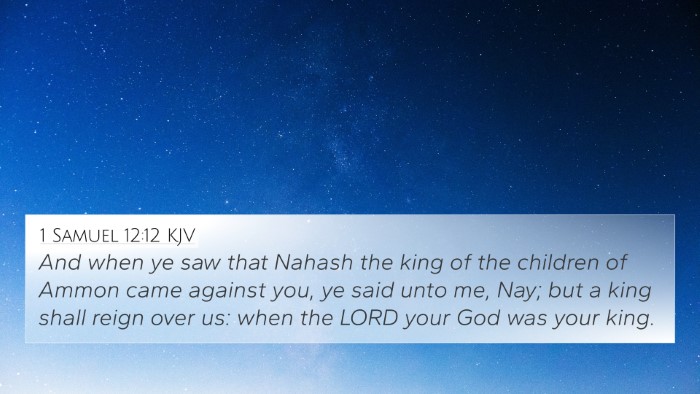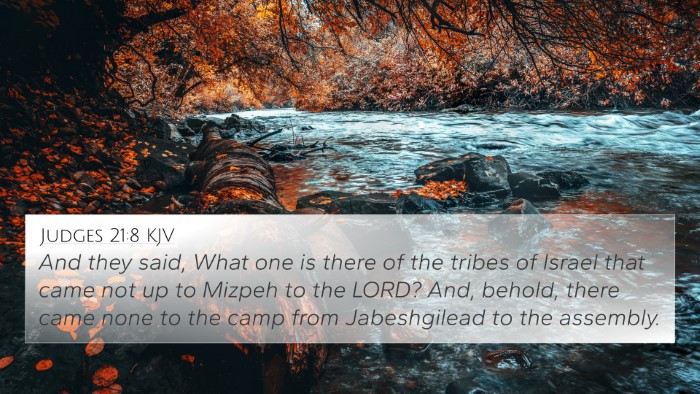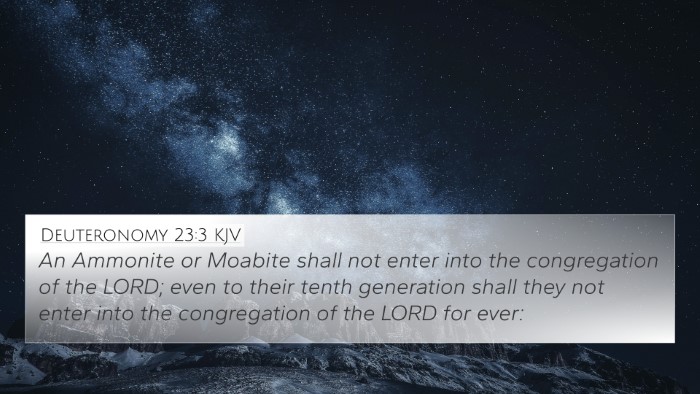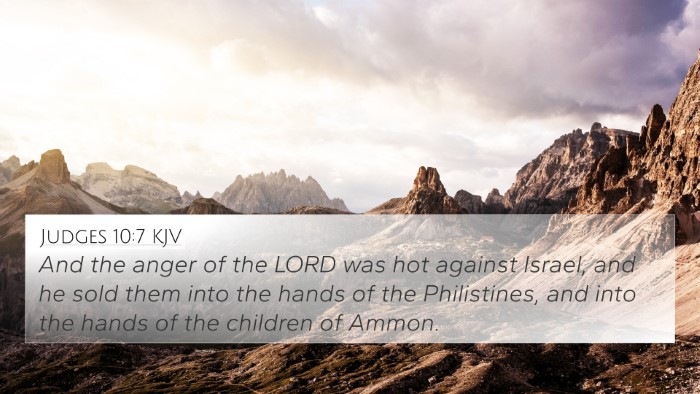Understanding 1 Samuel 11:1
Verse Reference: 1 Samuel 11:1 - "Then Nahash the Ammonite came up, and encamped against Jabesh-gilead: and all the men of Jabesh said unto Nahash, Make a covenant with us, and we will serve thee."
Verse Meaning and Commentary
The passage from 1 Samuel 11:1 introduces a critical moment in the history of Israel during the transition from the period of the judges to monarchy. This verse highlights the threat posed by Nahash, the Ammonite king, as he lays siege to Jabesh-gilead, a city located in Gilead. The response of the inhabitants reveals their desperate situation, as they appeal to Nahash for a covenant, which signifies subjugation.
Historical Context
This event takes place shortly after Saul’s anointing as king. The Ammonites' aggression represents not only a military threat but also a challenge to the newly established monarchy. Matthew Henry points out that the request for a covenant indicates the fear and vulnerability of Jabesh-gilead’s people, who saw no means of resistance against the Ammonites.
Insights from Commentaries
- Matthew Henry: He emphasizes the desperation of the people of Jabesh-gilead, illustrating how fear can lead to surrender and a willingness to compromise their freedom. He highlights the spiritual lessons of relying on God in times of adversity.
- Albert Barnes: Barnes discusses the significance of covenants in ancient Near Eastern culture, noting that seeking a covenant with Nahash implies acceptance of servitude. He connects this desire for peace at any cost to human tendencies in crises.
- Adam Clarke: Clarke elaborates on the strategic ramifications of this event, suggesting that the siege by Nahash was a significant act of aggression against Israel’s nascent national identity. He implies that the plea of Jabesh-gilead serves as a precursor to Saul's upcoming heroic response.
Bible Cross-References
This verse connects with various themes and narratives across both the Old and New Testaments. Below are some crucial biblical references:
- Judges 9:1-6: The account of Abimelech's rise to power after the death of Gideon, illustrating themes of conflict and territorial disputes.
- 1 Samuel 10:27: The rejection of Saul by some individuals, contrasting with the acceptance of him by Jabesh-gilead later on.
- 1 Samuel 12:12-13: A reminder of Israel asking for a king; this context is crucial to understanding Saul’s legitimacy.
- 2 Samuel 10:1-5: A subsequent conflict with the Ammonites during David’s reign indicates ongoing hostilities.
- Deuteronomy 20:10-12: God's instructions regarding warfare with foreign nations and the granting of terms of peace, reflected in Jabesh-gilead’s plea.
- Luke 4:18: A New Testament reference where Jesus speaks of liberation; it mirrors the desire for freedom seen in Jabesh-gilead.
- Philippians 1:27: Paul encourages unity and strength in facing opposition, akin to what Jabesh-gilead lacked against Nahash.
Thematic Connections
The plight of Jabesh-gilead can be analyzed through various biblical lenses. Key themes include:
- Fear and Desperation: The actions of the men of Jabesh-gilead show the depths of human fear and the temptation to yield to oppressive forces (see Isaiah 41:10).
- Leadership and Deliverance: Saul's eventual response to this crisis can be viewed as a turning point in his leadership (compare with 1 Samuel 11:6-11).
- The Nature of Covenants: The complexity of alliances in the Bible is reflected in the request for servitude; relevant passages include Genesis 15 and Exodus 24.
Conclusion
1 Samuel 11:1 serves as a profound reminder of the challenges faced by the people of Israel and the dynamics of leadership and covenant relationships. By examining this scripture alongside related verses, one can gain a deeper understanding of how these narratives interconnect and influence the overarching story of the Bible.
Further Explorations
For those interested in delving deeper into the connections between Bible verses, tools like a Bible concordance or a Bible cross-reference guide are invaluable. They allow for comprehensive exploration and detailed comparative Bible verse analysis, enriching our understanding of God’s Word.
References for Study
- Tools for Bible Cross-Referencing: Utilize various biblical reference resources for in-depth study.
- How to Use Bible Cross-References: Learning to identify thematic Bible verse connections enhances comprehension of scriptures.
- Inter-Biblical Dialogue: Understanding the relationships between Old and New Testament texts can illuminate spiritual insights.















